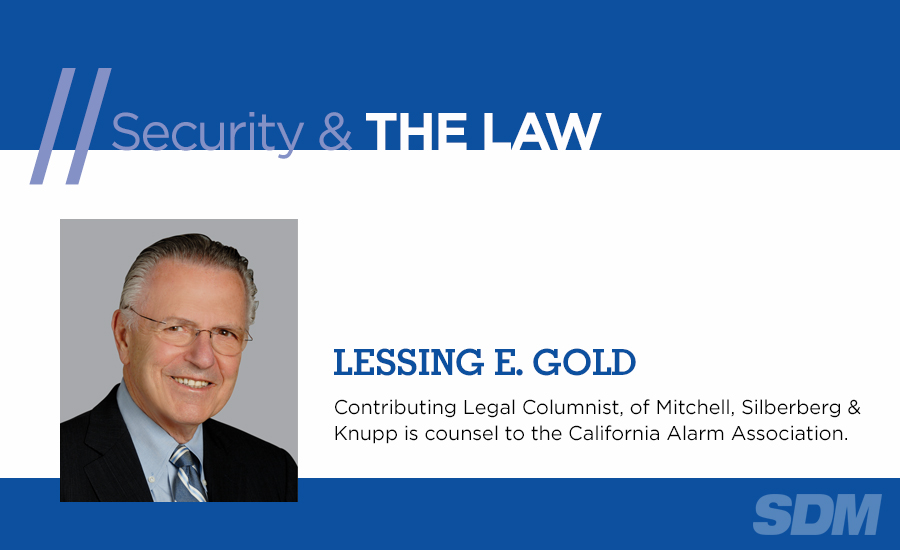Security & The Law
Legally Going Green

Kermit the frog said, “It’s not easy being green.” While it takes some effort and may not be easy going green for an alarm company, it is certainly an achievable goal.
One of the most commonly considered areas of going green is the reduction in paper usage. Currently being used by a small number of alarm dealers, the use of paperless contracts electronically signed by customers is an available method for going green, but it does require adherence to a variety of rules and regulations.
The law with respect to the use of electronically signed agreements is found in two principal codified acts. The first is the Uniform Electronic Transactions Act that sets forth the state requirements for electronic signatures. Because having different requirements in different states made it difficult for a business to comply on a multi-state basis, the federal Electronic Signature in Global and National Commerce Act (E-Sign) was adopted in 2000.
Electronic contracts and signatures are valid and enforceable. E-Sign impacts how the contract may be formed, but it does not change the basic contract law. Many jurisdictions require that an alarm agreement be in writing. An electronic agreement can satisfy this written requirement if certain procedures and disclosures are followed. However, because of the nature of the security industry and the significance of having a good contract because of liability limitation issues and other matters, compliance with the E-Sign rules is very important.
The alarm dealer must still comply with basic contract law. As examples, if you use an electronic signature process for an in-home solicitation (e.g. use electronic signature pad), this does not alleviate your obligation to provide the appropriate notice of cancellation, although you may be able to give it in electronic form. Generally, the terms and conditions of your electronic contract will be the same as your paper contract, and must comply with any unique laws regarding security agreements that are found in various states such as limitations on automatic renewals and disclosures of licenses.
I strongly recommend that an alarm dealer who intends to use electronic agreements and signatures engage the services of a company that specializes in creating and storing electronic signatures. You can find these companies with a simple computer search for electronic signatures.
READERS ASK
Q: Because of the COVID-19 pandemic, a number of my administrative employees are working from home. Do I have to provide lunch breaks, rest periods and/or overtime while they work from home?
A: This is a question that is governed by state law and it really depends on which state(s) you are doing business in. One of the issues which I am sure you should be concerned about is whether the employee is working from home voluntarily or whether the employee is required to remain at home. If the employee is working voluntarily, the decision may be construed more liberally. I do know that various states have taken the position that notwithstanding the fact that the employee is working from home, the employee would be entitled to his/her normal lunchbreak, rest period or overtime. I would suggest, however, that you check the rules and regulations of the state(s) in which you are doing business.
Looking for a reprint of this article?
From high-res PDFs to custom plaques, order your copy today!






